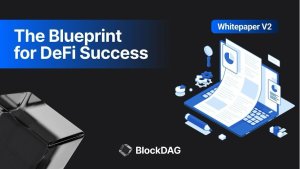Big US stock exchanges face opposition in market manipulation case
The plaintiffs argue the Court should nix the motion for an interlocutory appeal filed by BATS, Chicago Stock Exchange, Direct Edge, Nasdaq and NYSE.

About a fortnight after some of the biggest US stock exchanges filed their Motion for an interlocutory appeal in a market manipulation case, the plaintiffs in the case have argued against the Exchanges’ request.
According to documents filed with the New York Southern District Court on July 1, 2019, and seen by FinanceFeeds, the plaintiffs in the case – the City of Providence, Rhode Island, Plumbers and Pipefitters National Pension Fund, Employees’ Retirement System of the Government of the Virgin Islands, and State-Boston Retirement System, oppose the defendants’ Motion to Certify Opinion and Order for Interlocutory Appeal.
Let’s recall that the lawsuit was brought by various investors (the plaintiffs) under Sections 6(b) and 10(b) of the Securities Exchange Act of 1934 against BATS Global Markets, Inc., Chicago Stock Exchange, Inc., Direct Edge ECN, LLC, New York Stock Exchange, LLC, NYSE Arca, Inc., Nasdaq OMX BX, Inc., and the Nasdaq Stock Market LLC.
Section 10(b) of the Exchange Act states that it is unlawful “for any person, directly or indirectly, . . . to use or employ, in connection with the purchase or sale of any security . . . any manipulative or deceptive device or contrivance in contravention of such rules and regulations as the [Securities and Exchange] Commission may prescribe as necessary or appropriate in the public interest or for the protection of investors.”
The investors allege that the Exchanges are violating the federal securities laws by providing services to high-frequency trading (HFT) firms in a way that amounts to actionable “market manipulation.” In particular, the investors argue that by providing (or selling) HFT firms services that allow those firms to execute allegedly harmful trading strategies more successfully, the Exchanges have engaged in conduct that adds up to an unlawful manipulative scheme under Securities and Exchange Commission Rule 10b-5 and are therefore liable under Section 10(b) of the Securities Exchange Act of 1934.
In May 2019, the Court sided with the plaintiffs and nixed the Exchanges’ motion to dismiss the complaint against them.
On June 17, 2019, BATS Global Markets, Inc., Chicago Stock Exchange, Inc., Direct Edge ECN, LLC, The Nasdaq Stock Market LLC, Nasdaq OMX BX, Inc., New York Stock Exchange, LLC, and NYSE Arca, Inc. filed a motion with the New York Southern District Court requesting that the Court certify for interlocutory appeal the Opinion and Order denying their renewed motion to dismiss the second consolidated amended complaint (“SCAC”) from May 28, 2019.
The Exchanges argued that the Court’s decision leaves room for differences of opinion. They noted that the plaintiffs did “not allege that they transacted in any particular security at any particular price, or how that price was supposedly affected by the alleged manipulation.”
According to the Exchanges, having simply alleged that the plaintiffs’ bought and sold unidentified stock on unidentified markets at unidentified times and unidentified prices without alleging that they suffered losses attributable to specific transactions, it is equally plausible that the plaintiffs were not injured at all or perhaps even benefitted from the alleged manipulation.
Further, the Exchanges argue that although the Court concluded that it was sufficient for the plaintiffs to allege that they purchased or sold unspecified securities, there is substantial ground for disagreement on this question.
In their response to the Exchanges’ motion for appeal, the plaintiffs note that the defendants’ main underlying argument is that the plaintiffs did not allege specific losses on specific securities that they traded during the Class Period. But, the plaintiffs stress, the defendants fail to address the fact that appellate review of this issue would not end the litigation even if the defendants were correct on the law – and they are not. For instance, with respect to Article III standing, the plaintiffs could amend the complaint by listing their thousands of class-period transactions, which would put them in the same position as the plaintiffs in Whole Foods, 858 F.3d 732, where Article III standing was adequately alleged.
And the issue of which of the plaintiffs’ transactions resulted in damages from the Exchanges’ market manipulation (which the Court properly recognized cannot be answered at this procedural stage in a market manipulation case) will soon be answered (and properly so) through discovery, the plaintiffs say.
Thus, according to the plaintiffs, the Exchanges are improperly seeking to raise these issues now through a §1292(b) motion precisely because they will soon become moot through discovery.
Finally, the plaintiffs stress that, rather than expedite the time until trial, there is a substantial risk that interlocutory review will not only fail to dispose of all issues raised but will also prolong the case and lead to piecemeal litigation.









